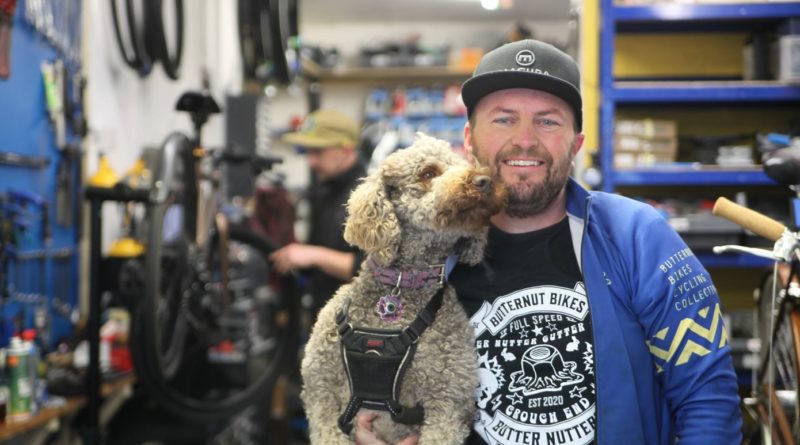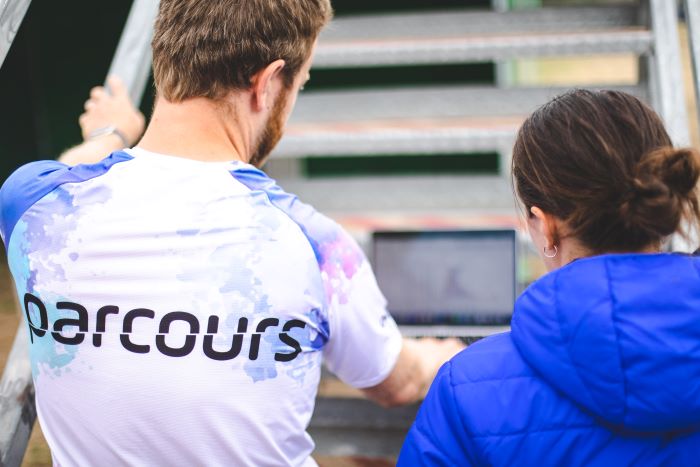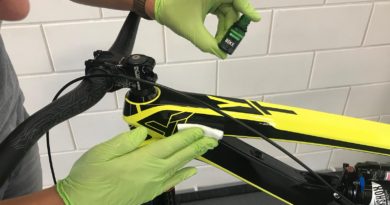Why one workshop trader thinks it’s time for the industry to talk more
Butternut Bikes would like to invite everyone for a beer. After all, what could be better for putting the world to rights and building a little community spirit? Read on to find out why the workshop driven business’s Founder Gavin Hudson thinks all in the trade should be talking more…
There are few in the bike shop community like Gavin Hudson, the Founder and Owner of Crouch End shop and workshop Butternut Bikes. He’s not been around as long as most in the biz, but in a short time has built not only a community around his store, but also with any indie retail business like his that accepts that “we’re all in the same boat, we should talk more,” as he puts it.
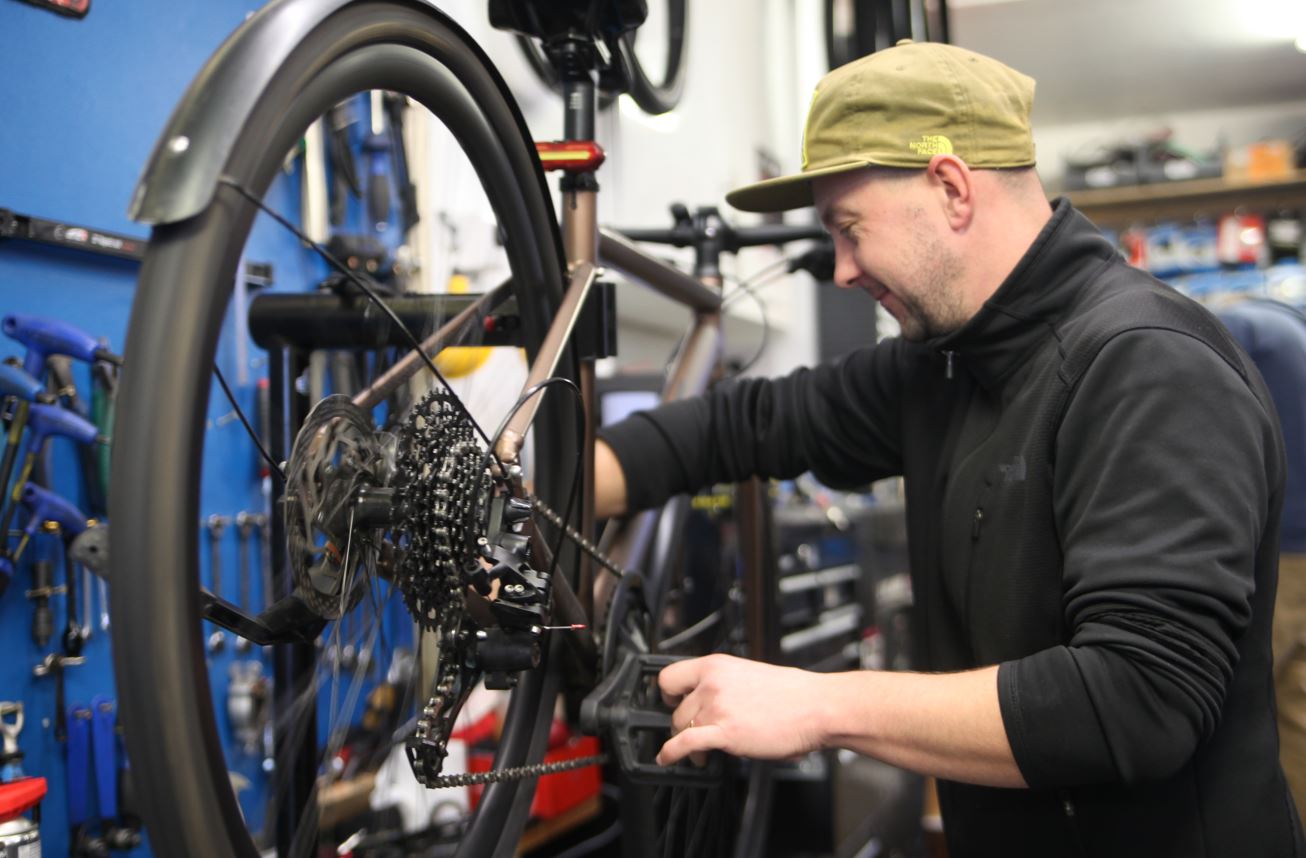 In January last year that resulted in a rare coming together of London shop owners (and this trade press) at the bar adjoined to the White Grounds Skatepark. An evening was spent ‘networking’ and chewing the fat over what’s been going on in the retail world. As organiser of the inaugural and informal bike shop beers, Gavin proposes this should be a more regular thing, not just for those in the area, but globally, perhaps on the first Friday of each month. Understandably, he just doesn’t want to organise all of them.
In January last year that resulted in a rare coming together of London shop owners (and this trade press) at the bar adjoined to the White Grounds Skatepark. An evening was spent ‘networking’ and chewing the fat over what’s been going on in the retail world. As organiser of the inaugural and informal bike shop beers, Gavin proposes this should be a more regular thing, not just for those in the area, but globally, perhaps on the first Friday of each month. Understandably, he just doesn’t want to organise all of them.
“Maybe one of the distributors could host some drink sometime too,” he says, telling us that with deeper connections the trade has a better chance of riding rough patches, or getting their ordering patterns under control. “I split a box of brake pads with someone the other week,” he adds, pointing again to a relationship with another store that’s mutually beneficial, albeit on a micro level.
It’s no bad thing to be concerned with details in the workshop business, which aside from sales of Tern eBikes, has been driving Butternut Bikes progress. The volume of bikes on site ready to be serviced attests to Gavin’s original reasoning for going further with his bike repair skills. In working with another bike shop previously he says he noticed the workshop demand was huge.
Before his time in the bike business he was a husky musher in Norway, before spending some time working in Parliament promoting cycling. That’s where the story began, but having been told by a former employer that a pay rise was unlikely he set out on his own, becoming a competitor to those who had turned down what he deemed a fair wage.
“I noticed people who really needed bikes fixing and not just the weekenders. These were transport riders who wanted to get around safely during the pandemic. I worked a few days a week doing house visits around here. Initially I said I’d do it for free to raise a profile, but people started to pay. The first bike I did was an Islabike with the forks on backwards. Going around repairing by bike became difficult as it was a logistical nightmare to coordinate, so I asked a local church if I could use the car park. From then I had a queue around the block for repairs. Then a landlord at the Railway tavern said his pub laid empty in lockdown, so would I like to use the pub as workshop? That was great fun during Covid; we were talk of Crouch End. Before I knew it, we’re open in Crouch End, on a former bike shop site, with three people working for Butternut.”
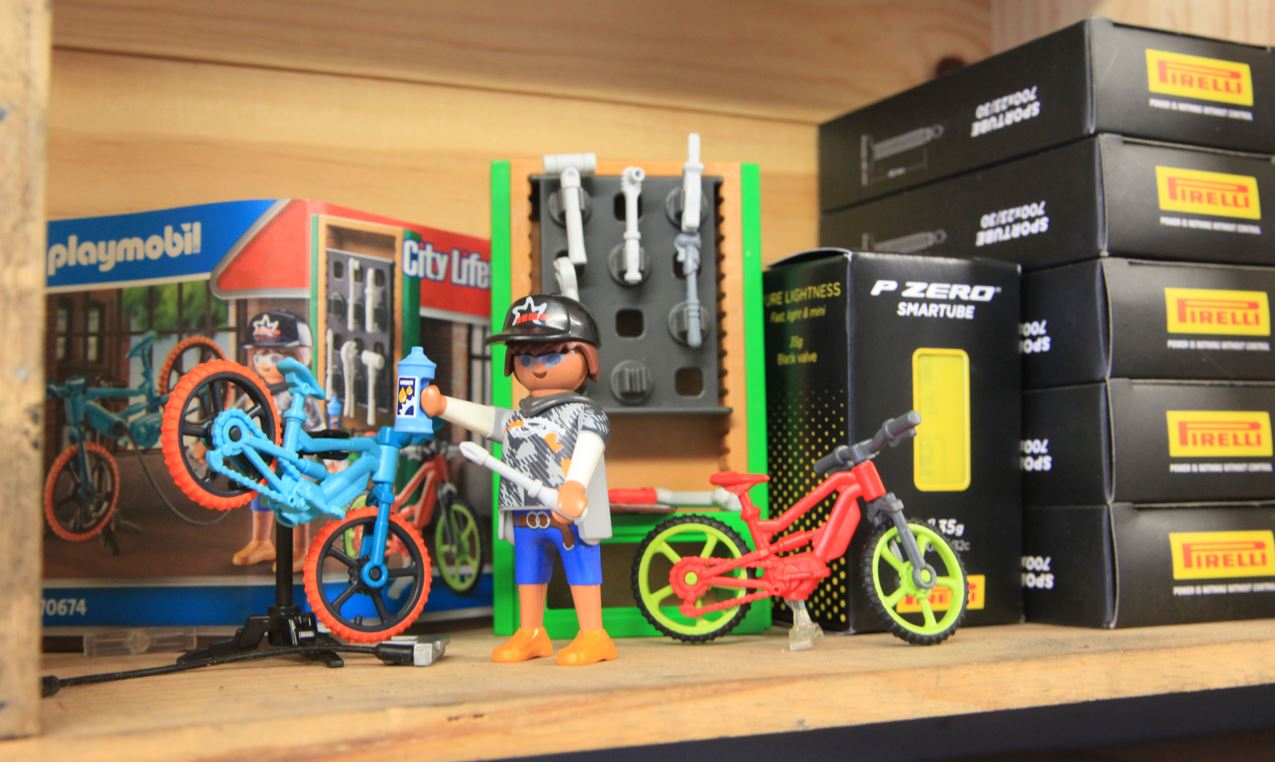
Touching back on the subject of paying mechanics a fair wage – something that CyclingIndustry.News’ own research has found to remain generally lacking at retail, in particular where wage packets are already at the lower end – Gavin has been keen not to fall victim to the trap of not valuing staff and eventually losing them.
“We have never had a quiet week since we opened. I think part of the reason is paying staff well; when you do so a better energy feeds down to the customer. I buy lunch each day as another show of appreciation. We had a shop bring us a wheel to true as part of their work overspill recently, but they told me we can’t pay more than £9 per hour in London, that’s ridiculous. Butternut pays a minimum of £15 per hour to staff. I think this pays back.”
With the flow of customers and donated bikes keeping every corner of Butternut’s storage occupied (the storage requirement has expanded twice in as many years) efficiencies have had to be sought. A game-changer, we’re told, was finding a booking system that bought the mechanics time otherwise lost on the phone. Having installed Hubtiger’s system Gavin says that the time saved adds up to many more man hours working on the flow of repairs.
“It sends a text with quote, they tick to accept and then there’s a clear paper trail. The customer can even pay online. Ultimately time is money and getting a proper booking system helped us grow up a bit and keep a better track of customer history. The people that run it listen to feedback and adapt, so it delivers value in shed loads,” he says.
Far from the roots where cut price house calls established a customer base, Butternut Bikes is today pricing in a way that is leaving little to chance on profitability. “Don’t be afraid to say to a customer that just wants a fork cutting that there’s patience and risk if it goes wrong. It might be a short job, but it requires time, expertise and patience. Again, I think bike shops should talk to each other more on this subject, there’s no point in us competing on and devaluing skilled services,” encourages Gavin.
In keeping with that attitude Gavin shares his basic pricing structure as £45 for a standard safety check (no parts replaced), £75 for a basic service, plus £20 if the bike needs a clean and, with more premium tasks, a quote will be offered on enquiry. A puncture repair, including a tube is £20 and “almost no one walks out” at that price, we’re told. As for rewarding customer loyalty, there’s a 10% discount for regulars with the risk taken that the bike is less likely to be in a bad way if a service schedule is maintained.
In the workshop turnover is vanity, profit is sanity
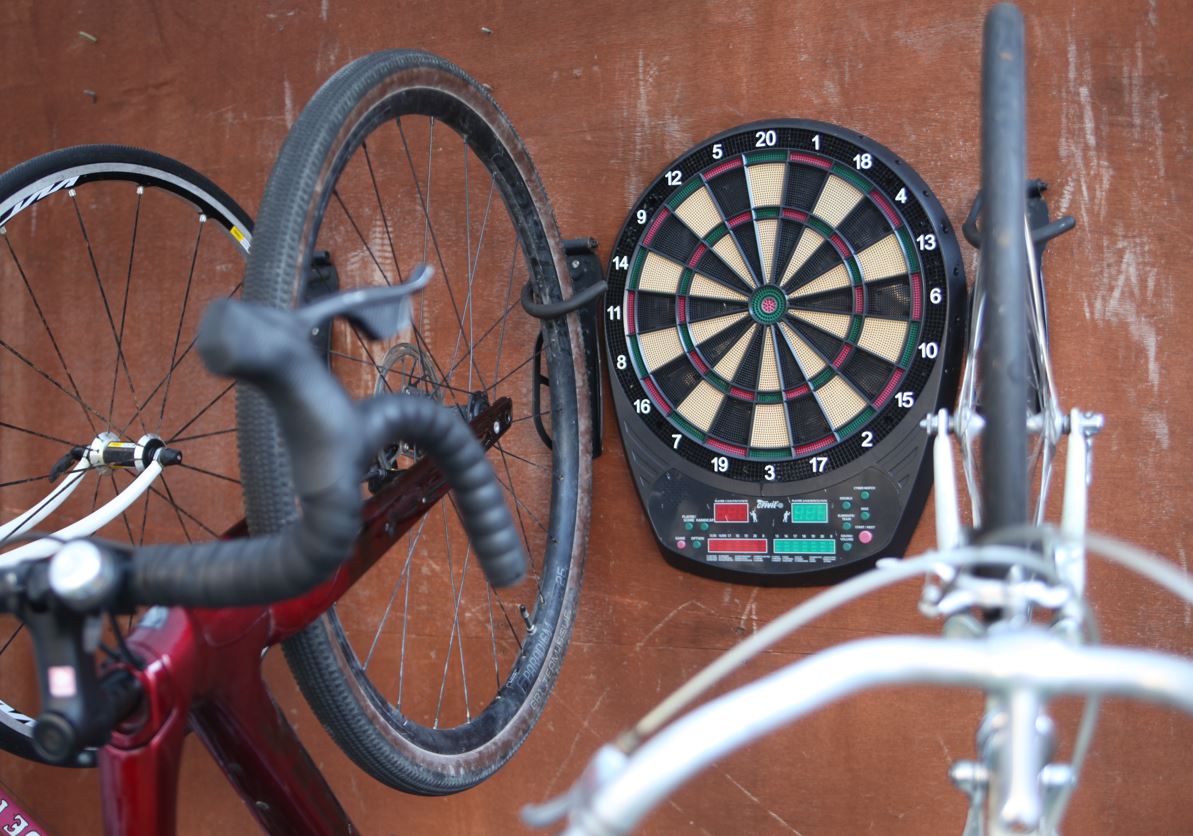
Where certain jobs are hard to make profitable Butternut has a strategy, nonetheless. “For example, it’s difficult to make profitable a single brake bleed or wheel true. In some instances we add £10 for tyre removal, which breaks down the task and saves time, should the customer remove it themselves and bring only the wheel.”
Profit is one thing, but in this economy so too is footfall. For that reason, the shop has apparently had “an enhanced focus on encouraging women and people who historically may have felt unwelcome in bike shops to feel comfortable.” Gavin adds that “I find that actually those cyclists tend to be better customers for us and appreciate the value we bring.” Furthermore, he wants to begin addressing a common theme with male customers who arrive and immediately begin by saying “I could probably fix it, but can you take a look.”
“Somehow there’s a perception that coming to see a shop is a failure, but it’s no more so than going to a restaurant because you can’t cook to that standard. ‘Men often say I could fix it, but…’ I don’t say that in a restaurant, that is go in and say I just want a starter, I’ll cook my main at home. It’s not a failure to bring us a job, that’s why we are here. If you are a lawyer, why would you spend hours swearing at a pair of brakes. We do it better and take less time, so go enjoy your day,” says Gavin.
Turning attention from the consumer to the trade, Gavin has plenty to share on the retailer supplier relationship and how to lubricate the wheels so that the relationship runs smoothly. First of all, he takes aim at the all-important B2B functionality and accuracy. He’s not alone in the feeling either; in CI.N’s aforementioned 2022 study of the retail market 84% of shops found this to be the rust on the chain stopping business moving the most.
“Many B2Bs look as though best practice examples were not observed ahead of the design brief. I will give credit where it’s due, ZyroFisher’s is the best I’ve seen. Most others needs work. For example, I’d like to see on the Madison B2B better descriptions on Shimano spares. It’s important so that I can be certain my parts order is correct. That aside, let’s see invoices available in excel format to import easily to our systems, not as PDFs. Finally, let’s clearly see on the B2Bs if better pricing is available and at what buy in levels. There are instances where I would buy greater volume for a better margin, but if the information is not clear then I cannot.
“On the physical side of product delivery, I would love it if distributors offered a set of price labels on anything bought. This would save us so much time and would give peace of mind that the price is right. This would encourage me to stock new lines, having to do less checking when goods land.”
To help shops and workshops compete when it feels as though turning a profit is arguably harder than it’s ever been, what Gavin would like to see more of is IBD exclusive lines. Here he again gives credit, pointing to Bob Elliot & Co as a distributor that, it’s felt, has a clear focus on the indie bike shop. “We need lines where price competition and discounting is not so prevalent,” says Gavin on the importance of margin stability to a business like his. It’s at this junction we have to ask, is there a deliberate strategy in only selling high value eBikes, bar a range of Frog Kids’ bikes? As has increasingly been discussed amongst retailers on trade forums, is there a weariness creeping in on giving over shop floor space to a product that has become notoriously hard to maintain margin on?
“If we sell a £5,000 eBike the money made in the middle enables us to spend proper time with customer, whereas that just doesn’t add up on lower priced bikes nowadays. There are factors to consider in this equation, such as knowing how well assembled a bike is when shipped. That can form part of our decision as to whether we working with a brand. If you spend an hour setting a bike up that’s loads of profit taken in time,” explains Gavin.
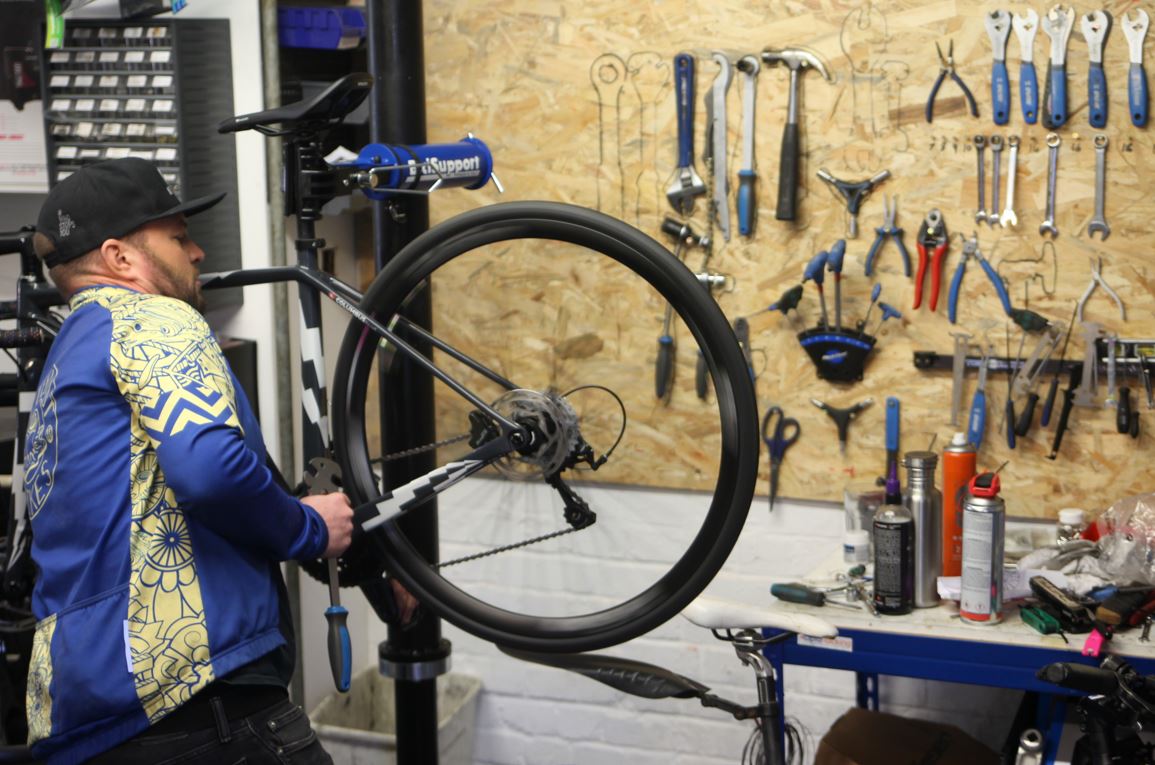
Naturally this brings up another controversial point of discussion: the Cycle to Work scheme’s ability to shift bikes and the value disparity for the consumer and retailer. The calculator comes out.
“I wish there were political appetite to get it changed, first of all so that those on the lowest incomes who need it the most have access; it shouldn’t benefit the most affluent disproportionately the way it does. Then there’s the difference in what’s offered by Green Commute Initiative who we prefer to pivot toward and the larger multi-billion dollar organisation that HR departments tend to pivot toward. It should be down to the employee to choose which platform to use and the value is notably different down to the final fee taken by Cyclescheme,” says Gavin.
Crunching numbers quickly on a £4,000 bike sale, the commission, plus end of term fee amounts to £1,400 in value for the UK’s largest facilitator. Meanwhile, that figure is apparently closer to £200 when Green Commute Initiative’s scheme is in play, he calculates.
But what about the kids’ bikes? There’s a sentimental reason for making sure the shop floor has stock. “It still feels to me like you need to have them in stock to serve community. It’s the best thing being part of magic of getting a kid cycling. As a recent parent myself that’s something I will grapple with now, as the competition from The Bike Club subscription services hasn’t gone unnoticed. I wonder, if that eventually becomes the only avenue for kid’s bikes, will the manufacturers regret their current enthusiasm?”
That’s the world put to rights. Any final thoughts, we ask?
“I’d like to thank the distributors that supported us from starting a small business to now. Those that took a chance on us made us,” concludes Gavin.
